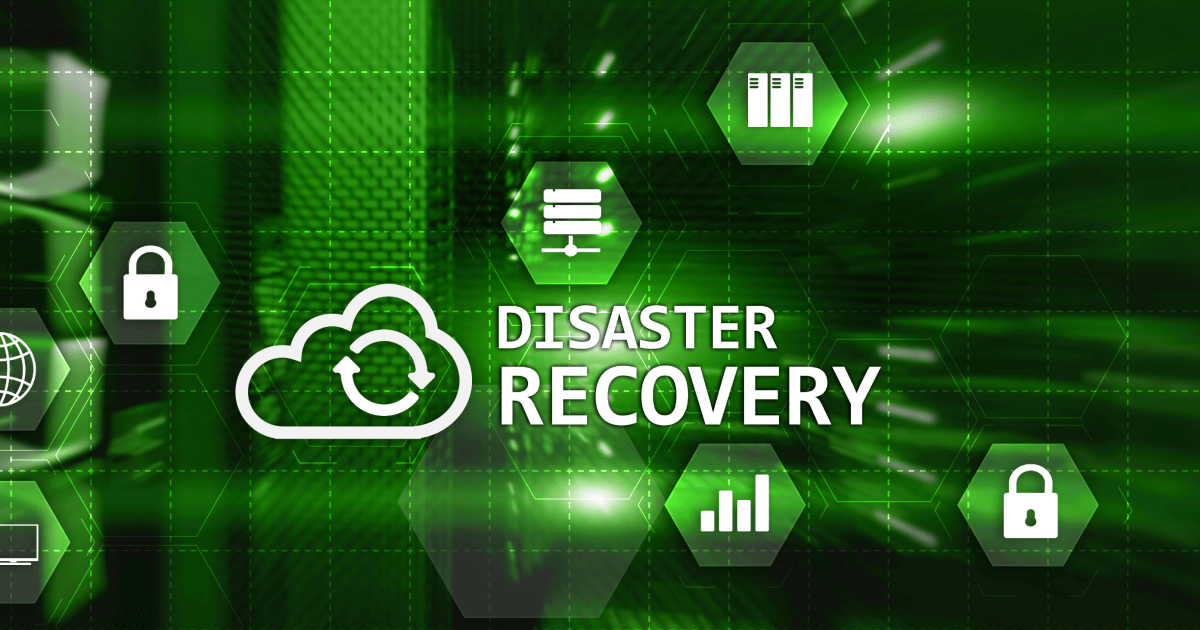The Law Firm Data Migration Process

For many years, on-premise software was considered to be the gold standard for safely storing the data of legal practices.
But these days, businesses are increasingly turning to new software in order to store their files and other data securely. In point of fact, according to the results of the ABA Legal Technology Survey Report 2022, seventy percent of respondents indicated that they make use of web-based services. What’s the rationale behind this change? Extra peace of mind, increased adaptability, and financial savings.
Continue reading if you are still having second thoughts about making the change, even though you may be considering it. In this article, we will discuss:
- What the process of data migration entails.
- Questions that you might have regarding a data migration
- The advantages that can be gained by switching legal practices over to cloud-based software
- The procedures necessary for a fruitful data migration
- Guidelines for the safe and secure storage of data in the cloud
Continue reading to find out how the use of cloud computing could be beneficial for your legal practice.
Common concerns when migrating data to the cloud
The decision to switch to a new platform and migrate data that spans years or even decades can be difficult to make. The process frequently takes up a lot of time and features a steep learning curve. On top of that, many businesses are concerned about the safety of their priceless data.
What is it possible that you do not know? It is in everyone’s best interest to upgrade to cloud software as soon as possible.
Security concerns

Migration to cloud-based software is something that a lot of people are afraid will make them more susceptible to cyber-attacks. On the other hand, working in the cloud is frequently the safer choice (more on this later).
Legal professionals need to select software in which they can have faith. You must ensure that the information of your customers, in addition to the data of your company, is secure. However, the most effective cloud-based legal systems perform routine security audits.
Look for cloud-based software providers like when you are selecting a legal case management system.
- Have their in-house security personnel.
- Ensure that you are in compliance with the privacy and protection legislation in your area.
- Conduct automated audits of the security system.
- Offer an uptime service level agreement (SLA), which states that the company guarantees a certain amount of time during which customers can use the software.
- Encrypt the data both while it is in transit and while it is being stored.
- Various legal organizations and legal societies support them.
Data loss
One of the worst-case scenarios that can happen to a law firm is that all of their data is lost, or even worse, some of the data is lost. What’s the upbeat report? The providers of legal software are aware of this, and they are available to assist with a seamless transition.
Choose a reputable software provider that has a dedicated migration team if you want to reduce the risk of losing data.
Make sure you have a backup of your data in order to give yourself some extra peace of mind. In an ideal scenario, you will also be able to set up dual running at the start of the migration. This means making sure that you continue to run both softwares with your company’s data at the beginning of the process. It would be best if you let your data run on both your old and new software for a few weeks before you cut off access to the old software. This will allow you to ensure that everything has transitioned to the new software without a hitch before you cut off access to the old software.
Learning curves
It is only natural for people to resist new ways of doing things. Learning a new system is laborious and time-consuming, and most legal professionals have enough on their plates to deal with their day-to-day responsibilities. It can be difficult to win over the support of your team or partners (or perhaps you’re struggling to overcome your reservations).
People are motivated by what directly affects them, as Jack Newton, CEO of, explains in The Client-Centered Law Firm. Although the success of the firm as a whole is important, in the end, people are motivated by what directly affects them. In any communications you have with your coworkers, always begin by explaining how the implementation of new procedures will improve their day-to-day lives.
For instance, the fact that there is “no time” to learn something new might be caused by the very system that is currently in place. If time is spent upfront to create a more efficient system, it may be possible to spend less time in the future on non-billable work or problems that were not anticipated.
Be sure to pick a provider that will put you in the best position to achieve your goals so that the transition to the new system goes as smoothly as possible. Choose service providers that offer support throughout the onboarding process and beyond with real humans, as well as a comprehensive library of articles and videos.
Read More: 10 Essential Immigration Tips for UK Visa Success
Benefits of using cloud-based software for law firms
Adopting cloud computing may initially require more work on your part, but in the long run, it will result in a more effective business operation.
Cost Savings
If you want to make a change at work that is easy to justify, implement something that will either save money or generate money for the company. Making the switch to legal practice management software (LPM) that is hosted in the cloud will almost certainly result in cost savings (and if used to its full potential, can also assist in locating opportunities to increase revenue).
Although it may appear that on-premise software only requires a one-time payment, the ongoing costs of maintaining it can quickly add up. Employing additional IT support, changing out or upgrading physical servers, paying maintenance fees, and paying for additional electricity are all additional costs.
You can receive IT support and software updates directly within your existing technology with cloud-based software, and the cost of these services is typically bundled into a single monthly or yearly subscription plan.
Cloud-based software not only makes your company more efficient but also saves you time that would have been spent on activities that are not billable. Some service providers even offer solutions that can assist you in digitizing even more of your business procedures.
You might, for instance, decide to go with client intake software that assists you in finding clients, automates the intake process, and assists you in determining which of your marketing efforts generates the highest return on investment.
Accessibility and mobility
Law firms need to implement solutions that are both productive and mobile in order to keep up with the growing trend of hybrid work.
If you choose to or are forced to, your law firm will have the flexibility to conduct business from virtually any location if you use cloud-based software.
Stay away from the commute when the weather could be hazardous, work from outside of town, or park close to the courthouse. Using software that is hosted in the cloud provides your practice with greater flexibility, both in terms of personal and professional circumstances. You are also able to easily integrate with meeting solutions such as Zoom and DialPad when using, which enables you to run a full-scale practice from virtually any location.
The ability to be flexible is another type of accommodation that may be required. Some disabilities make it difficult or even impossible to engage in activities that require extensive travel or consistent face-to-face interaction. By removing obstacles relating to mobility, adopting software that runs in the cloud enables your business to become more welcoming to prospective employees as well as customers.
Security
There is a widespread misunderstanding that on-premise servers offer a higher level of data protection than cloud-based alternatives. However, legal cloud-based providers invest heavily in cybersecurity, frequently more than any individual law firm would be able to afford; therefore, the cloud is the option that offers the highest level of safety. For instance, hosting facilities undergo annual audits for security certifications (such as SOC 2 and ISO27001) to ensure that they make use of advanced physical security measures such as biometrics, CCTV cameras, and on-site security that are available 24 hours a day, seven days a week. Infrastructure also features geo-redundancy for added safety and reliability.
Platforms such as additionally have teams and technology that are dedicated to guaranteeing that the software is secure at all times. You can even control who within your own company has access to various information, which will allow you to reduce the likelihood of an internal security breach occurring.
Disaster recovery

Because no amount of security software can guarantee protection from a disaster, every company should have a plan for how to recover from a catastrophe. Your technology, along with all of the files that are stored on it, could become inaccessible as a result of almost anything, from a simple coffee spill to a major fire.
Cloud-based software, on the other hand, does not restrict your data to a specific device in the same way that locally hosted-servers do. When you keep your matters, contacts, and other information in the cloud, you can access that information in a matter of minutes from another device simply by logging in securely.
Cloud-based software allowed Donato Law to recover from a double catastrophe without experiencing any downtime. A flood occurred just a few days after Jodi Donato’s office was destroyed by fire, and it washed away the majority of the paper files that were left.
“A lot of the other attorneys in the building, they weren’t up and running the next day because they weren’t cloud-based businesses,” Jodi says. “Cloud-based businesses are becoming increasingly popular.” “The fact that I didn’t really skip a beat was a huge deal and made that possibility possible,” she said.
Collaboration and communication
By storing files in the cloud, your practice will be able to collaborate more effectively. You’ll have the ability to quickly share documents with the other members of your team and view them at the same time.
The improved communication will also be beneficial to your team as well as your clients. The ability to manage time-sensitive information more promptly means having access to your files at any time and from any location. You no longer need to go to the office to connect to your server, nor will you need to attempt to connect using a virtual private network (VPN). Software that is hosted in the cloud enables you to connect safely from any location with internet access.
Read More: 20 Best Law Firms in California in 2023
Steps for a successful data migration
You’ve decided that it’s time to switch providers, but you have no idea where to begin the process. If you want your business to have a successful data migration, you need to follow these four steps.
Plan your migration
You must consult with your provider in order to formulate a data migration strategy before you begin the migration process.
Has a data migration team that can assist you in comprehending the following:
- Which of your data can be exported?
- Any restrictions and alternative solutions for data that fall outside of our typical scope.
- Your schedule for the data migration.
- What to anticipate once the migration of your data has been completed.
Preparing your data for migration
Make sure that your data is up to date, that it is clean, and that it does not contain any duplicates before you begin your migration. All of the contact information should be properly organized in the appropriate columns (for example, you shouldn’t put a phone number in the email field), each matter should have a description and an assigned client, and the column headings should be aligned correctly. For instance, guides on how to get your data ready for migration are in this section.
Migrate the data
Ironically, the stage that promises the most excitement also promises the least drama. The migration process itself is typically an automated step for your company to follow. The information that you prepared in the previous step will be imported into the software used by the provider that you have chosen.
Test your migration
Run some tests on your new system before you put it into production so that you can make sure everything is functioning as expected. Please verify that all of your data, including matters, clients, and so on, has been transferred to the new platform and that it appears where and in the manner in which you anticipated it would.
Go live
At long last, you’ve reached the point where you can launch your brand-new software! Always make sure to keep your customers informed about any changes they should anticipate. Additionally, maintain communication with the support team of your provider so that they can assist you in navigating the change. During the first few weeks of the change, members of your staff might have questions.
Best practices for maintaining data in the cloud
Both legal service providers and legal service providers place a high premium on data and network security. There are best practices that can be followed, but the provider you choose should also be taking regular steps to help you ensure that your data is secure. For additional peace of mind, you can also take these steps yourself.
Create backups of your data on a regular basis to protect yourself from any unanticipated data loss. Some service providers will perform backups for you automatically, relieving you of an additional non-billing responsibility.
In order to lessen the likelihood of there being a security breach on the inside of your company, restrict access to sensitive information. Please make use of the user permission settings to ensure that your employees only have access to the information that is relevant to the tasks they are responsible for.
Make sure that your software is always up to date so that you have the most recent safeguards available. The newest features will automatically update, and no downloading will be required.
Final thoughts on data migrations for law firms
The choice to use software that is hosted in the cloud may seem like a significant one, but in the long run, it will be beneficial to your company.
The following benefits come along with making the switch from on-premise servers to legal software hosted in the cloud:
- additional safeguards
- enhanced productivity as well as cost reductions
- A greater degree of adaptability and mobility
- Data retrieval made simpler
The transition to a new solution does, in fact, require an inevitable time investment on your part. On top of that, time is money. However, in the long run, the time spent learning a new solution and migrating to it will pay for itself by making your law firm more productive and profitable.
Selecting a reliable software provider, such as will put you in a better position to achieve your goals. You will want to make sure that your provider offers a client experience that will leave you feeling confident in your new tools. This is in addition to the security features, ease of use, and day-to-day functions that the tools offer.











